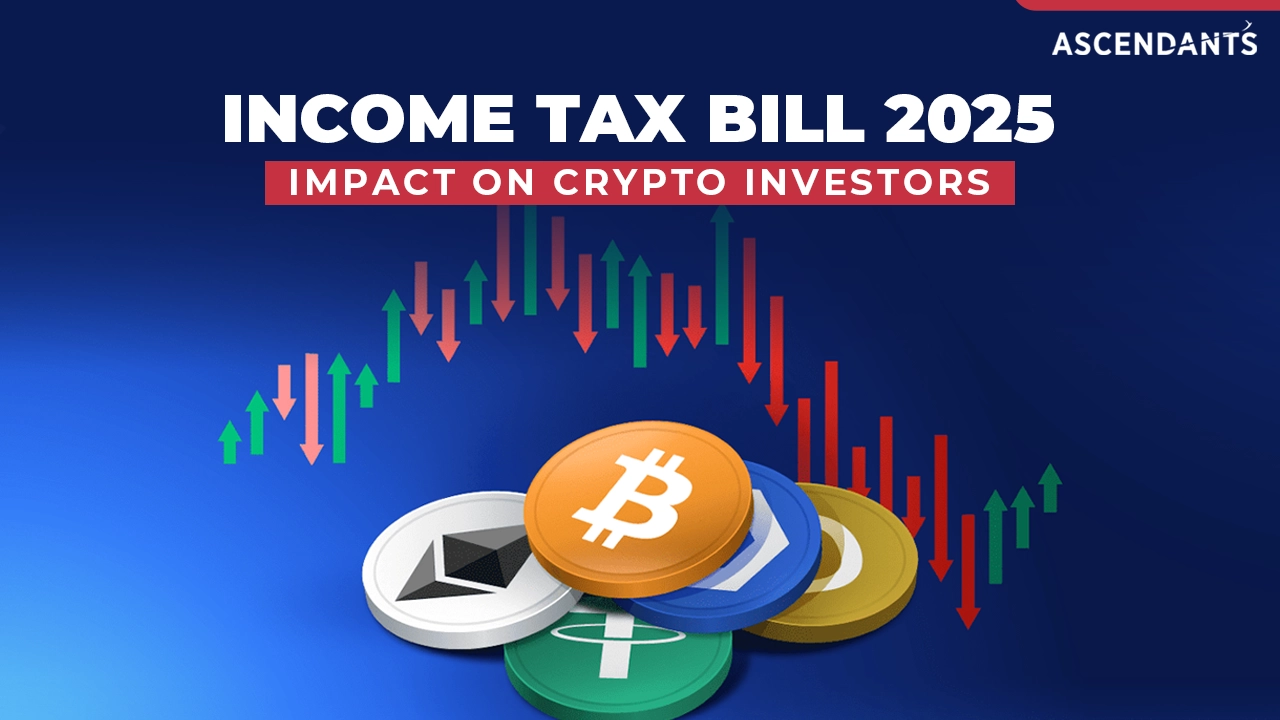India’s crypto investors are on high alert as the New Income Tax Bill 2025 is set to bring major changes in taxation rules. This bill aims to simplify tax laws and tighten cryptocurrency transaction regulations.
While India has so far had a Love-Hate relationship with Crypto-currency, by leaving it unregulated and in a grey area for the longest time to coming up with heavy taxations and crackdowns on Indian Crypto Exchanges, without sounding caution. However, since then, a lot of development has taken place, such as the amassing of Cryptocurrency as an asset by nations such as the United States of America. Will India follow suit or protect its traditional Economy? Let’s explore.
Here’s what you need to know if you invest in Bitcoin, Ethereum, or any other Crypto assets.
What’s Changing?
The New Income Tax Bill includes Potential New Rules for cryptocurrency. Some of the expected changes include:
- Tax on Crypto Gains – Profits from cryptocurrency trading may be subject to capital gains tax.
- TDS on Crypto Transactions – Crypto exchanges might be required to deduct tax at source (TDS) before crediting your earnings.
- No Set-Off for Losses – If you incur losses in crypto trading, you might not be able to adjust them against other income sources.
- Mandatory Reporting – Investors may need to report their crypto holdings annually to avoid penalties.
These changes aim to regulate the growing crypto market and ensure tax compliance.
Why Is the Government Doing This?
The Modi government is introducing new guidelines to regulate cryptocurrency transactions and taxation. Here’s why:
- To Prevent Tax Evasion – Crypto traders are not declaring their income, and as a result, tax revenue is being lost.
- To Bring Regulatory Clarity – Crypto taxation has been unclear until now. New tax brackets and definitions will introduce clarity.
- To Align With Global Trends – Many countries, such as UK, has already implemented strict crypto tax policies. India is following suit.
- To establish a foundation for India’s Digital Currency– Discussions have surfaced about a BRICS currency and India’s own digital currency, which the government may choose to promote now or later.
Also Read: Gold and Silver Prices Hit All-Time Highs: A Detailed Overview
Growth in the Number of Crypto Investors
Despite regulatory challenges, Crypto adoption in India has surged.
Here is a graph showing the growth of crypto investors in India. The number of investors has steadily increased, reaching over 30 million in 2024.

How shall this impact Crypto Investors?
For crypto traders and investors, these changes do not provide a boost in confidence, meaning:
- Higher Tax Liabilities – More transparency but possibly higher taxes on profits.
- Difficulty in Offsetting Losses – Riskier trading since losses might not be deducted from taxable income.
- More Compliance Burden – Investors will have to keep detailed records of their transactions.
- Impact on Trading Volume – TDS deductions might reduce daily trading activity, affecting market liquidity.
TDS Impact on Crypto Trading
Here is a graph showing the potential impact of TDS on crypto trading volume. As TDS rates increase, trading volume is expected to decline, which may reduce market liquidity.

What Should Investors Do Now?
- Maintain Records – Keep track of all transactions, including buy/sell details, timestamps, and amounts.
- Understand Tax Implications – Before trading, calculate the tax impact on your earnings.
- Consult a Tax Professional – A professional will walk you through the new rules and suggest minimising tax burdens.
- Diversify Your Portfolio – Don’t put all your money in crypto. Diversify with stocks, gold, or fixed assets.
Final Thoughts
As of now, there are no signs that the Indian government is banning cryptocurrency, but they are tightening rules to ensure tax compliance for sure. Staying informed and following tax laws will be crucial for investors in 2025 and beyond.
Must Read: Global Stock Market Fall: Is it the right time to invest?






















